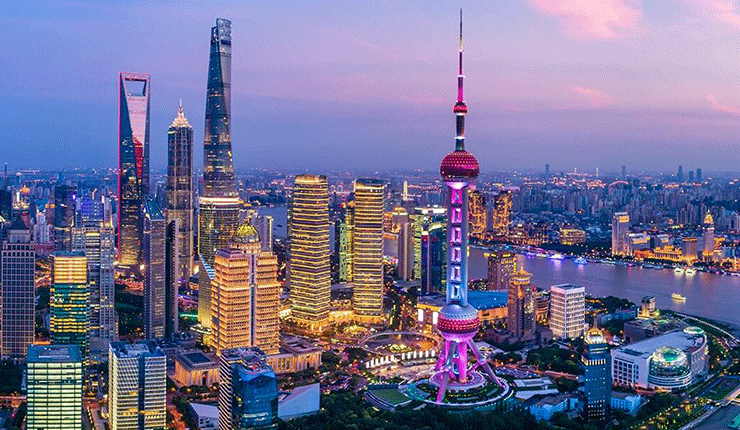Editor’s Note:
“War is like a mirror. Looking into it helps us better appreciate the value of peace. Today, peace and development have become the prevailing trend, but the world is far from tranquil. War is the sword of Damocles that still hangs over mankind. We must learn the lessons of history and dedicate ourselves to peace.”
On September 3, 2015, Chinese President Xi Jinping, also general secretary of the Communist Party of China Central Committee and chairman of the Central Military Commission, made the remarks in his address at the Commemoration of The 70th Anniversary of The Victory of the Chinese People’s War of Resistance Against Japanese Aggression and The World Anti-Fascist War. The remarks were included in the second volume of the series Xi Jinping: The Governance of China.
On September 3, 2025, a grand ceremony to commemorate the 80th anniversary of the victory in the Chinese People’s War of Resistance Against Japanese Aggression and the World Anti-Fascist War will be held in Beijing. General Secretary Xi will deliver an important speech.
As the important commemorative events are about to take place, the Global Times, along with People’s Daily Overseas Edition, released the 11th installment of the special series “Decoding the Book of Xi Jinping: The Governance of China.” We continue to invite Chinese and foreign scholars, translators of Xi’s works, practitioners with firsthand experience, and international readers to discuss the theme of “learning the lessons of history and dedicating ourselves to peace.”
In the ninth article of the “Scholars’ Perspectives” column, Global Times talked to Professor Hu Dekun, Honorary President of Chinese Institute for History of the World War II and former Vice President of Wuhan University.
Global Times: The article “Remember the Past and Our Martyrs, Cherish Peace, and Build a New Future”in the second volume of Xi Jinping: The Governance of Chinastresses that “During the war, through enormous national sacrifice, the Chinese people held their ground in the main Eastern theater of World war II, thus making a major contribution to overall victory.” There has long been a tendency in the international community to view World War II through a “Western-centric” lens. The contribution and role of the Chinese People’s War of Resistance Against Japanese Aggression to WWII have not been given sufficient attention internationally, particularly within Western academia. What do you think are the reasons behind this cognitive bias? In recent years, with the growing cross-referencing of Chinese and foreign historical materials and deeper academic exchanges, has there been any new change in how the international community evaluates Chinese People’sWar of Resistance against Japanese Aggression?
During the war, China’s important role was highly recognized by Allies. However, in the postwar period, particularly during the boom of Western research on WWII in the 1950s and 1960s, most Western publications tended to downplay or gloss over Chinese People’s War of Resistance against Japanese Aggression and the Soviet Union’s Great Patriotic War. They often portrayed the German blitzkrieg against Poland in 1939 as the starting point of World War II, while offering only very cursory or vague accounts of China’s resistance.
There are two main reasons for this. The first is the Cold War – the West disparaged the Soviet Union and, likewise, socialist China. Regardless of the difficulty in accessing historical materials, their historical perspective itself was neither objective, neutral, nor comprehensive. The second reason is Western-centrism, which is reflected not only in the study of WWII but also in many other fields, rooted in the belief that the West is the center of the world and inherently superior.
In the past decade, some British and American scholars have adopted a global historical perspective in their works to reexamine WWII. Most of them recognize the September 18 Incident of 1931 as the key event leading to the outbreak of WWII, which allows for a more balanced assessment of Chinese People’s War of Resistance Against Japanese Aggression and China’s contribution to the victory of the World Anti-Fascist War.
Although some people still fail to view Chinese People’s War of Resistance Against Japanese Aggression correctly, research on China has been increasing along with the country’s development. To truly understand China, one must also look at its history—particularly modern and contemporary history, including the history of the Communist Party of China, its leadership in the War of Resistance, and how this period profoundly influenced the founding of the People’s Republic of China and the nation’s development over the pastseven decades.
Global Times: General Secretary Xi has pointed out that “history is the best textbook, as well as the best dose of sobriety.” From this perspective, what significance does an accurate view of WWII history hold for China and the world? Currently, some countries display tendencies of historical revisionism, attempting to downplay or even distort the history of WWII, while allowing remnants of extremism and militarism to resurface. Against this backdrop, what practical warnings or lessons arise from emphasizing China’s significant contributionto the victory of the World Anti-Fascist War?
HuDekun: The reason we say “history is the best textbook” is that only by remembering historical experiences and lessons can weclearly understand the direction of historical development and adhere to the correct path of progress amid unprecedented changes unseen in a century.
From an international perspective, there are some incorrect views of WWII. These include not only Western narratives that belittle China but also historical perspectives promoted by Japanese right-wing forces that attempt to justify Japanese militarism. By upholding an accurate view of WWII, we can promote the correct historical narrative and understanding of the World Anti-Fascist War internationally, countering the spread of erroneous interpretations. Whether from an academic or public communication standpoint, this primarily serves to set the record straight.
The victory in the World Anti-Fascist War shattered two old orders: first, the post–WWI order centered on the League of Nations, which aimed to maintain the imperialist colonial system. This order adopted a policy of compromise and appeasement toward the expansion and aggression of the fascist states of Germany, Italy, and Japan, allowing localized conflicts to escalate into a full-scale war; second, the so-called “Eurasian international order” established by the fascist states during the war, which was an order based on conquest, enslavement, and exploitation of occupied countries and peoples. World War II swept both of these old international orders into the dustbin of history.
The most important outcome of the victory in the World Anti-Fascist War was the establishment of the postwar international order. At the core of this new order is the UN. The purposes of the UN Charter are to maintain international peace and security and to promote human progress and development, reflecting the strong desire of peoples around the world for a new world characterized by peace and equality, cooperation, and prosperity. At the same time,WWII shook the foundations of colonialism, opening the way for national independence and liberation. Over the past 80 years since the end of the war, despite the nearly half-century-long Cold War and the occasional occurrence of regional conflicts, the UN has maintained the overall peace of the postwar world for a long period, prevented the outbreak of a new world war, kept international order relatively stable, promoted significant global economic and social development, and advanced human civilization to an unprecedented level.
The great rejuvenation of the Chinese nation, as well as world peace and development, are all built on the foundation of the victory in the World Anti-Fascist War. China progressed from a semi-colonial, semi-feudal society to achieve independence, liberation, and historic leapfrog development, while the world as a whole shifted from war and turmoil to a mainstream of peace and development. Looking back on this history, we not only gain historical confidence in the rejuvenation of our nation but also confidence in the path of future development. From the Five Principles of Peaceful Coexistence to the concepts of a new type of international relations and a community with a shared future for humanity, these are all goals shaped and advanced by the wisdom we draw from history.
General Secretary Xi emphasized that history is the best dose of sobriety.This is to remind us that fascist aggressors must be nailed to the pillar of historical shame, and we should effectively counter historical revisionism, while remain vigilant against the resurgence of extremist and militarist forces. All countries should uphold a correct understanding of WWII when telling history and educating their people, deeply grasp the underlying causes of the war, and work together to safeguard the postwar international order, so as to keep the world away from the danger of another global conflict.
Global Times: General Secretary Xihas pointed out that “War is like a mirror. Looking into it helps us better appreciate the value of peace,” and “In the interest of peace, we need to foster a keen sense of a global community of shared future.” Looking back at the Chinese People’s War of Resistance Against Japanese Aggression and the World Anti-Fascist War, why is it that building a community with a shared future for humanity represents the common future of people around the world?
First and foremost, there should be a consensus that conflict and war are not means to resolve problems; achieving peace requires joint efforts of the international community. If a new world war were to break out, no country could remain unaffected. During WWII, some nations initially pursued appeasement policies out of self-interest, only to find that they were ultimately “hoisting a rock to drop on their own feet.”
Moreover, WWII reshaped the mainstream pattern of global development. From the early stages of imperialism until the end of WWII, the West led global development – but this was an aggressive, expansionist model: the more colonies a country controlled, the faster it developed. The competition for colonies became a driving force for war. WWI did not break the monopoly of colonialism; countries with fewer colonies launched new wars to seize territories, ultimately leading to the outbreak of the WWII.
After WWII, the colonial system gradually disintegrated, and colonial and semi-colonial countries pursued independence and liberation. During this period, both the former colonial powers and the formerly colonized nations sought paths for independent and self-determined development. However, with the rise of a multipolar world and economic globalization, especially amid increasing global challenges, a new development model and set of principles became necessary. This is peace, development, cooperation, win-win outcomes, and the building of a community with a shared future for humanity, as emphasized by General Secretary Xi.
In the previous development model, developing countries often occupied a relatively passive position. Today, however, all nations are interconnected–“what affects you affects me, and what affects me affects you.” Whether developed or developing countries, nations now form a community of shared interests, shared responsibilities, and shared destiny, where collaboration and mutual benefit are the only correct choices. Just as the victory in the World Anti-Fascist War was not achieved by any single country, and post-war global peace has not been maintained by any one nation alone, the current development challenges, governance issues, and global crises we face cannot be tackled or avoided by any country on its own. Therefore, countries must strengthen coordination and cooperation, align the interests of their own people with those of peoples around the world, and work together toward building a community with a shared future for humanity.

